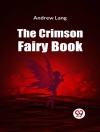Thomas Hardy’s 'Jude the Obscure, ’ a pivotal work in the World’s Classics Series, challenges the social conventions of Victorian England through its exploration of the life of Jude Fawley, a working-class man whose aspirations for education and love are continually thwarted by the rigid class structure. Hardy employs a realist literary style infused with naturalistic elements, depicting the harsh realities of life and the futility of ambition within a society resistant to change. The narrative’s unflinching examination of issues such as marriage, sexuality, and intellectual aspiration positions it as a significant critique of the era’s moral and social values, leading to its initial controversy and eventual censorship. Thomas Hardy, a novelist and poet known for his profound understanding of human nature and societal constraints, drew inspiration from his own experiences growing up in rural England. His background as an architect and exposure to literary circles informed his perspective on the struggles of the lower classes and the barriers posed by societal norms, motivating him to create this poignant saga of aspiration and despair. Hardy’s personal grappling with faith and the constraints of his environment resonates throughout Jude’s tragic journey. Readers are encouraged to delve into 'Jude the Obscure’ to witness Hardy’s masterful storytelling and incisive social commentary. The novel’s enduring themes of aspiration, love, and existential struggle highlight the timeless relevance of Hardy’s work, offering profound insights into the human condition that continue to resonate in contemporary discourse.
O autorze
Thomas Hardy (1840–1928), the acclaimed English novelist and poet, was born in the rural hamlet of Higher Bockhampton, Dorset. Hardy’s literary career was rooted in the Victorian era, where he evolved into a formidable figure in English literature. He was educated locally, and at the age of 16, he became an apprentice to an architect before moving to London to pursue that profession. However, his passion for writing eventually led him to a literary path. Hardy is perhaps best known for his poignant and often pessimistic depiction of rural English life, reflecting the social constraints and hardships of the time. Among the pantheon of his novels, 'Jude the Obscure’ (1895), a part of the World’s Classics Series, stands as one of his most controversial works, met with both outrage and admiration upon its release. The book’s frank portrayal of sexuality and critique of the institution of marriage led to a virulent public backlash. Hardy’s style is characterized by his grim outlook, detailed character studies, and the fatalistic intertwining of human lives with the indifferent forces of nature, which often lead his characters into tragic circumstances. The book encapsulates his signature themes of social criticism and the struggle against the constraints of society. After 'Jude the Obscure’, chastened by the critical reception, Hardy turned away from novels and spent the rest of his literary career focusing on poetry. Today, Hardy is celebrated for his contributions to literature and his enduring influence on modern writers.












